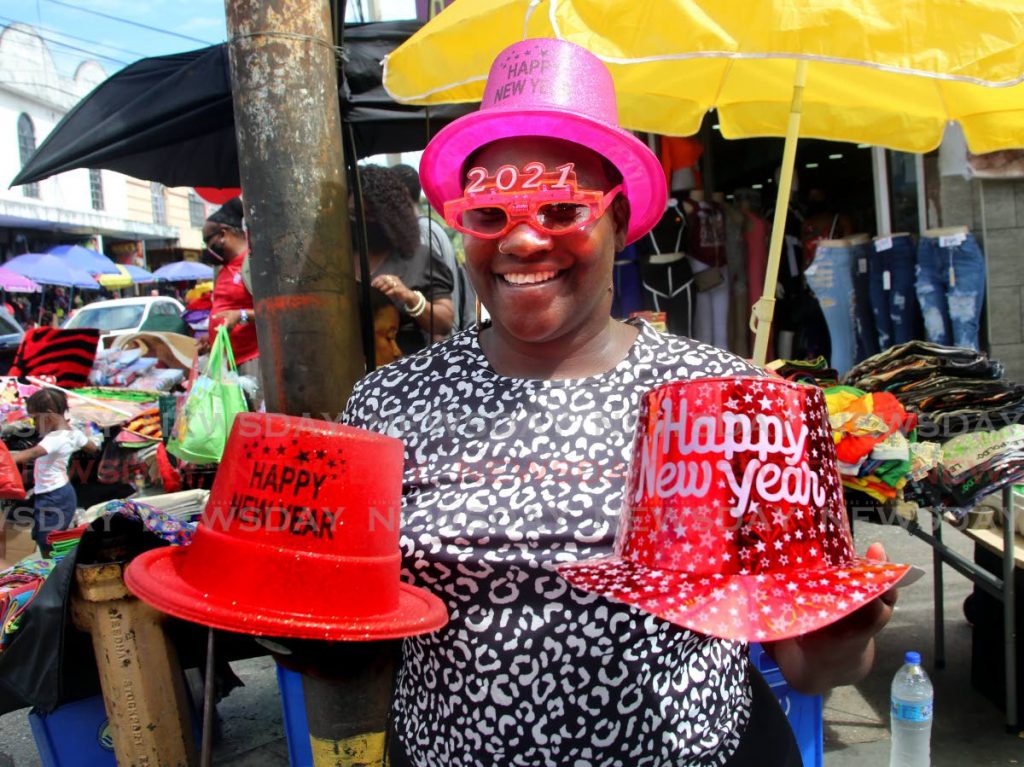'Holiday festivities' trigger covid19 spike in January

Covid19 cases spiked to more than 400 cases in January due to the “holiday festivities” of last December, reports technical director of epidemiology, Dr Avery Hinds.
Speaking at the ministry’s virtual press conference on Saturday morning, Hinds said there have been 609 covid19 cases this year with 414 in January, 149 in February and, so far, 46 in March.
However, he congratulated the population on following the covid19 regulations so that TT’s cases are on a downward trend.
Ten new cases were reported in Saturday’s 4 pm update by the Ministry of Health.
It stated that the samples were taken between March 10 and 12, bringing the total to 7,769.
The number of active cases increased from 93 to 102, the number of people in home isolation dropped from 97 to 84, and those in state quarantine facilities decreased from 310 to 221.
The number of deaths remain at 140, hospital patients remain at four, and those at step-down facilities also remain at four. The number of recovered patients increased by one to 7,527. The number of tests done was 101,766.
Dr Neil Bhagwandass, nephrologist and acting head of the Department of Medicine at the San Fernando General Hospital, at the press conference, stated that 81 per cent of those who have covid19 are asymptomatic or have mild or moderate symptoms. Fourteen per cent have severe symptoms that require hospitalisation and five per cent could become critically ill with a prolonged illness and even multi-organ failure. The mortality rate of that five per cent is 49 per cent, so, about half of them would die.
“If covid19 infection were allowed to spread without any measures, this five per cent of critically ill or 14 per cent severely ill patients would translate into large numbers of ill patients requiring hospitalisation and specialist care.”
He said three of the most dangerous risk factors for hospitalisation are hypertension, diabetes, and obesity. They are inflammatory conditions that suppress the immune system’s ability to fight infections, and diseases.
“Having these conditions is not thought to put you at increased risk of getting covid19. However, if you do become covid19 positive and infected, it places you in a very high risk category for getting severe covid19 infection, which may progress to being critically ill.”
Others at risk factors include people with lung conditions, cardiovascular disease, chronic kidney disease, cancer, and those whose immune system does not work properly, and the elderly.
“Healthy patients of any age could become critically ill if you acquire covid19 infection. (But) the risk increases with age.
“Patients who live in long-term care in residential homes or who are in long-term care facilities for health reasons are at higher risk because of their older age and underlying medical conditions.”
Bhagwandass added that it was rare for people to have only one comorbidity.
For example, he said a diabetic person has an 80 per cent risk of getting high blood pressure. An obese person has a high risk of becoming diabetic and therefore hypertensive. And all three predisposes people to getting chronic kidney disease, heart attacks and strokes.
In addition, people with sickle cell disease and other blood conditions, Down's syndrome, pregnancy and who smoke could be predisposed to a severe covid19 infection. Smoking opens people to chronic obstructive pulmonary disease, but also because people share cigarettes and put their fingers to their mouths to smoke, making it easier for them to contract covid19.
He encouraged people to get their illnesses under control by taking the right dosage of their medication on time, not missing scheduled appointments with health care professionals, and by making positive lifestyle changes such as eating healthy foods, exercising, and stop smoking.
He stressed that if a person whose diabetes is well controlled got covid19, their risk of dying is one per cent. If their diabetes is not well controlled, the risk increases to 11 per cent.
He also encouraged people not to let the fear of contracting covid19 stop them from seeking medical assistance for any medical problem. And to continue to adhere to the covid19 health regulations because 40 to 50 per cent of covid19 infections were contracted from asymptomatic or pre-symptomatic people.


Comments
"‘Holiday festivities’ trigger covid19 spike in January"